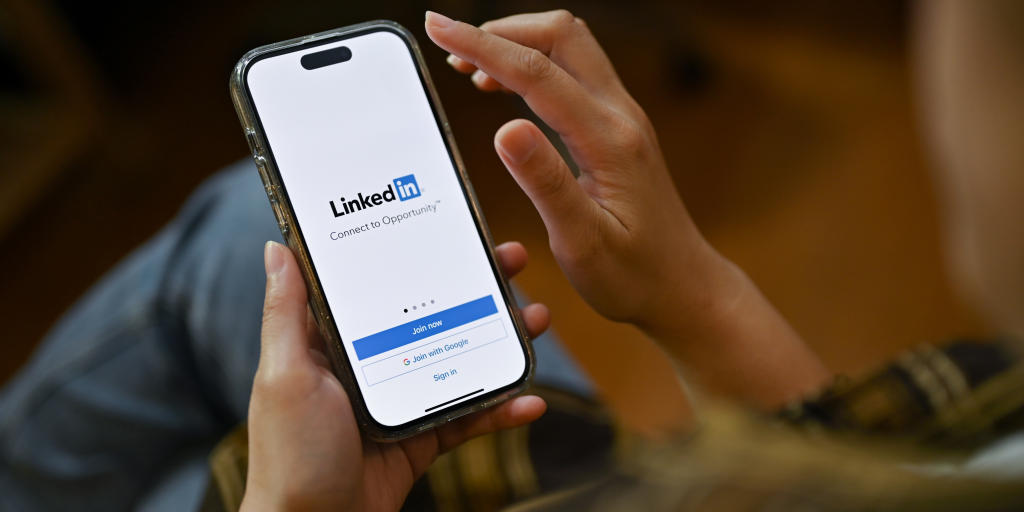B2B Marketing trends for 2021 are being driven by two primary factors: the COVID-19 pandemic, and the increased use of advanced technology by Marketers.
COVID has made B2B Marketing teams more important, as Sales teams are unable to use traditional face-to-face tactics to sell and require more digital marketing agency support. Our buyers are increasingly available online, which means many digital tactics have a higher chance of success than they did previously.
On a technology front, many of the platforms and practices that have been common in high-volume B2C marketing are increasingly being adopted in the world of B2B marketing.
We see the following 10 B2B Marketing Trends coming to the fore in 2021.
1. Video content marketing
As fewer people have been able to come face-to-face, video content has exploded, replacing human context in many cases. Video content marketing is the single greatest B2B Marketing trend we see over 2021.
Regardless of the reason for video, it is often a more efficient form of presenting content to an audience. If a picture speaks a thousand words, a video can speak millions! When it comes to B2B marketing, you need to ensure that your target audience understands what you are offering. In general video content will fare better than blog posts and other text-based content.
Additionally, video content lends itself well to sharing. C-suite executives are more often than not on the look-out for valuable content in their particular field. If you offer engaging video content, it will be shared across a sizable professional network, increasing the possibility that your prospects will come across it.
Therefore, it is prudent to invest in quality video. This can be a long-form video that engages the audience for a while. Alternatively, you can make use of a short video that piques your audience’s interest and gives them a better look at your brand and what you have to offer.
2. Podcasts
More than just a craze, podcasts have risen in popularity. Podcasts appeal to various individuals, addressing their different interests. Around 44 per cent of senior-level decision-makers carve out time in their day to listen. Podcasts are a good fit for brands who want to educate senior decision makers while they are otherwise ‘switched off’: we see high-quality, educational podcasts as a key B2B marketing trend for 2021.
Making a successful and compelling podcast involves identifying a niche that appeals to your target audience. However, merely identifying this niche does not translate to avid listeners. To attain loyal podcast fans, you need to provide quality content in each episode. Doing so earns you devoted listeners that will always look for new episodes. Not only does this paint you as a leading voice in that particular niche, but it also fosters brand awareness.
A podcast will elevate brands in 2021 because this content format is massively underappreciated and underused in the B2B realm. Consequently, integrating a podcast into your digital marketing strategy will help your brand stand out.
3. Webinars
The coronavirus pandemic has fast-tracked webinar adoption among professionals due to remote working. Businesses have gotten a taste for this, and we can see this continuing in lieu of in-person seminars: webinars will be a key B2B marketing trend for 2021.
9 in 10 professionals point to webinars as their preferred format for learning in a work context. Webinars are particularly useful when it comes to generating high-quality leads, increasing engagement and growing sales. Additionally, webinars grow a brand’s identity, exposing its service to an assorted assembly of attendees.
To leverage the power of webinars, marketing teams need to ensure that they integrate actionable insights into their presentations. This can include tips and tricks, industry trends and predictions, as well as expert interviews.
Furthermore, webinars can inform case studies of the brand’s solutions. Businesses can conduct research and present their findings – alongside actionable insights – via webinars.
4. Integrated Marketing Teams
Moving forward, stratifying a marketing team into different channels will hamper efficiency. This will be particularly apparent as omnichannel marketing takes centre stage in reeling in prospective business clients.
Siloed teams lack efficient cooperation and the ability to lead prospects through an increasingly sprawling customer journey uniformly. Therefore, bringing all sections under one group will foster better marketing campaign management.
Integrated marketing team members should know about each other’s roles so that they can align their goals to dovetail with others’. This will be particularly useful in 2021 as brands attempt to target businesses from all angles with a consistent message.
5. Search Marketing that appeals to multiple personas
Web search is now over 25 years old: yet as a marketing tool, search marketing is as relevant as ever. Search has evolved to a point where it’s a key part of nearly every digital marketing strategy. Compared to conventional SEO, B2B optimisation requires brands to tweak their content to suit multiple decision-makers. This is the case because purchases are approved at different levels.
Specifically, Search Marketing that appeals to multiple personas will be a B2B marketing trend for 2021.
To get successful conversions, you need to appeal to the individuals at these different posts in the target organisation. Therefore, the content needs to appeal to people on the ground, marketers and executives alike.
So, marketers need to derive search intent from their buyer personas. This makes it easier to do effective keyword research. These keywords should signal what exactly key figures in the target business would search for when looking for a brand’s service or product. With all of this in place, marketing teams should create content that compels their different audiences to take action.
In 2021, the strategy should include a content calendar so that the business has a consistent web presence. This keeps the brand in target clients’ minds if they need a service or product in that particular niche.
6. Omnichannel Marketing
Also known as integrated marketing, omnichannel marketing is set to be a B2B marketing trend for 2021 because of its emphasis on putting the prospective client first. This form of marketing involves leveraging different marketing channels depending on where your buyer wants to consume content – rather than where a brand would prefer to place their messaging.
For instance, a brand’s promotion strategy can include social media marketing, paid ad campaigns, email marketing and blog content. The goal is to ensure that the target C-suite executives see your brand wherever they turn.
When they open their email, they have quality newsletters from your brand. If they log onto their LinkedIn, they see your branded content. Furthermore, they come across your ads on their browser and essential websites they visit. It’s this omnipresence that makes them think of your brand first should they encounter a problem or need in your area of operation.
Therefore, your market research needs to be on point, allowing you to understand your ideal client better. In doing so, you can target all the channels your prospects are likely to frequent.
7. Artificial Intelligence
Artificial Intelligence has been powering consumer marketing for years now, and we see AI becoming a B2B marketing trend over 2021.
Artificial Intelligence is already responsible for intuitive chatbots and smart replies in email, and helping find a good fit between employer and employee on LinkedIn. AI powers most advertising algorithms, Marketing Automation, and conversational marketing technologies. Artificial intelligence is poised to make an even more discernible impact on B2B marketing in 2021 as the technology evolves.
Businesses continue to collect increasing volumes of data about their prospective clients. AI makes it easier to sort through this data, gleaning actionable insights. These insights can be leveraged to effectively market products and services to prospective clients.
This tech can scour large databases for potential targets; targets that are more likely to respond to the brand’s marketing efforts. Consequently, marketing teams will handle less cold calls and emails, allowing them to redirect their efforts.
Furthermore, AI will also bolster business’ personalisation efforts when it comes to marketing and handling individual accounts. The technology does this through a comprehensive analysis of prospects’ behaviours, permitting marketers to tailor individualized strategies for different potential executives.
8. Predictive Analytics
In the same breath from above, predictive analytics is set to become a B2B marketing trend in 2021. In this instance, businesses are turning to predictive analytics to inform their marketing decisions.
Predictive analytics bring plenty of positives to a brand’s marketing strategy. The tech allows brands to efficiently leverage their business intelligence to draw trends and future practices.
The resultant predictive models allow businesses to tailor their marketing campaigns to take advantage of future behaviour. After all, professionals welcome ambitious and progressive propositions that speak directly to their business’ future needs.
9. Virtual and Augmented Reality
Virtual Reality is a fast-moving and unexpected B2B Marketing trend for 2021.
Both our two key drivers of COVID and technology apply here. Virtual walkthroughs have replaced physical walkthroughs; and virtual reality technology has dropped in cost as tech advances.
How might you apply VR or AR in your context? There are instances where even the best marketing campaigns leave prospects undecided. True, they are convinced about your product or service. However, they are still straddling the fence, unable to choose between you and the competition.
This is where virtual or augmented reality comes into play. VR and AR give prospects a hands-on experience with your product or service in a unique medium.
Furthermore, marketers can use this tech to offer more engaging presentations. Rather than go through mundane slideshow-filled seminars or webinars, virtual reality makes presentations more engaging.
In an ever-competitive world, virtual reality will make brands stand out from all of the noise.
10. Data Security as a core Marketing Competency
Businesses collect different kinds of data from their potential targets. Analysing data informs various decisions, especially when it comes to marketing.
However, prospective business clients are skittish about outside parties accessing their data. For instance, if your brand operates in the SaaS field, you would need to access your client’s data to integrate their system.
Therefore, you need to convince prospective clients that your system is impregnable, allowing you to safeguard their data assets. The onus is on the custodians of the brand – Marketing – to provide that data security is tight. Therefore, data security as a core Marketing competency is something we foresee becoming a B2B marketing trend for 2021.
It’s no wonder that two-thirds of large organisations employ Chief Data Officers to reign over this invaluable asset.
Moving forward into 2021, privacy and security will be more than a trend because businesses will collect even more types of data touch points across their operations.
Do these trends Resonate with you?
If you would like to learn how Resonate can work with your business to improve your marketing play now and into the future, please do not hesitate to get in touch with us at sales@resonate.com.au.




